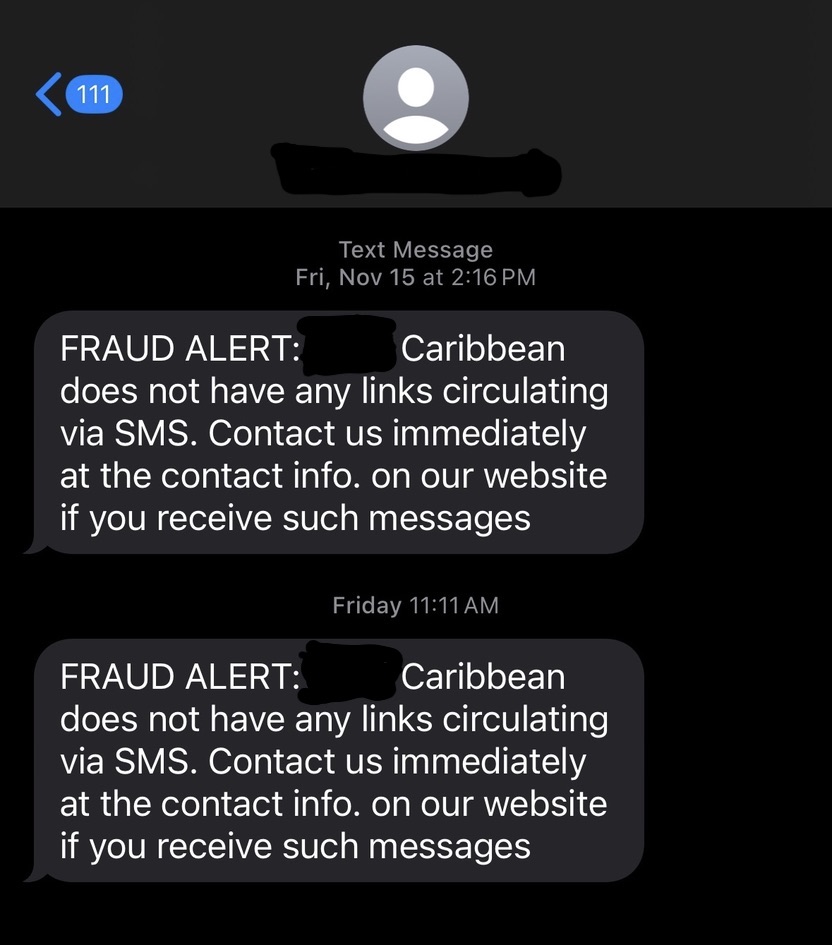
Executive Summary
As we head into the holiday season, cybercriminals are ramping up their phishing campaigns, and residents of the Cayman Islands have become a target. Phishing, a form of cyberattack where threat actor(s) trick individuals into revealing sensitive information such as passwords, credit card details, or personally identifiable information (PII), often surges during this time of year when online shopping and digital communications increase.
Recent reports indicate a significant rise in phishing attempts across the Cayman Islands, with threat actors using emails, text messages, and social media to exploit holiday-related themes. These phishing campaigns are designed to catch you off guard with enticing offers, urgent warnings, or fake notifications. While the holidays are a time for celebration, it’s crucial to prioritize your online safety. By staying informed and adopting good cyber hygiene practices, you can circumvent phishing attempts and enjoy a worry-free season.
Common Phishing Tactics
Recommendations & Best Practices for Online Safety
Scrutinize Emails and Messages:
- Check for grammatical errors, generic greetings, or sender addresses that don’t match the organization's official domain.
- Hover over links (without clicking) to inspect the URL for inconsistencies. Typosquatting is a type of social engineering attack which involves tricking users into visiting malicious websites with URLs that are common misspellings of legitimate websites.
Verify Sources & Integrity:
- If an offer, message, or request seems suspicious, contact the organization directly through verified channels instead of using links or numbers provided in the message.
- Phishing campaigns often rely on creating a sense of urgency to prompt rash decisions.
- Financial institutions will never ask for account or personal information to be shared via email or text message.
Be Cautious with Attachments:
- Avoid downloading attachments from unknown senders, as they may contain malware.
Enable Multi-Factor Authentication (MFA) + Use Strong/Unique Passwords:
- Protect your accounts by adding an extra layer of security.
- Avoid reusing passwords across sites. Consider using a password manager for safe storage.
Educate Yourself and Your Family:
- Share phishing awareness tips with friends and family to ensure everyone remains alert.
Report Suspicious Activity:
- If you receive a phishing attempt, report it to the appropriate service provider or financial institution.
- If you believe you've been a victim of cyber fraud or financial crime, you're encouraged to contact the Royal Cayman Islands Police Service (RCIPS) Financial Crime Investigation Unit. Please refer to the "Resources" section for more information or email directly here.
Final Thoughts
Phishing is one of the leading causes of data breaches worldwide, often occurring due to human error or a lack of adequate security measures. Staying vigilant and implementing robust cybersecurity practices can significantly reduce the risk of phishing-related breaches. While the holidays are a time for celebration, it’s crucial to prioritize your online safety. By staying informed and adopting good cyber hygiene practices, we can circumvent phishing attempts and enjoy a worry-free season.
Resources
1. Royal Cayman Islands Police Service (RCIPS) Cyber Crime Prevention & Safety | Email: RCIPS.FCU@rcips.ky| Website: https://www.rcips.ky/crime-prevention-fraud-awareness
2. Cayman Islands Government CyberSafe Public Education Program | Website: https://www.gov.ky/cybersafe/
3. Cayman Islands Bankers Association Cybersecurity Awareness | Website: https://cibankers.org/cyber-security/